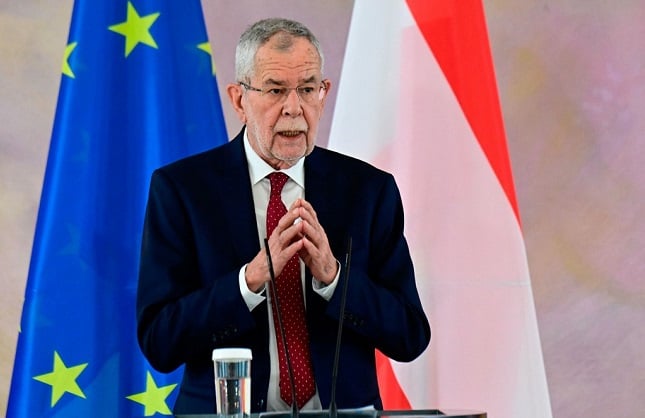Austrian citizens will be able to vote for their next president on Sunday, October 9th, but since he announced he’d been running for the job again, incumbent Alexander Van der Bellen has been the uncontested favourite.
Van der Bellen was first elected in 2016, starting his term the following year. Despite the presidency being a largely ceremonial role, VdB, as he is known in Austria, has held office while the country went through political instability, the coronavirus pandemic and the Ukraine war and the consequent inflation and energy crisis.
READ ALSO: Reader question: Can I vote in Austria’s presidential elections?
He has since positioned himself as a stable and safe choice during changing and challenging times. And he is expected to be voted for a second term, possibly already in the first round, with an absolute majority.
BUNDESPRÄSIDENTENWAHL | Sonntagsfrage OGM/Kurier
Van der Bellen: 58% (-5)
Rosenkranz: 16% (-5)
Wallentin: 9% (NEU)
Wlazny: 8% (+3)
Grosz: 5% (-1)
Brunner: 3% (-2)
Staudinger: 1% (NEU)Änderungen zur letzten Umfrage vom 15. Juli 2022
Verlauf: https://t.co/pnUYDZKr8V#bpwahl pic.twitter.com/ls2prdNBn4
— Österreich Wählt (@Wahlen_AT) October 1, 2022
Van der Bellen, who was part of the Greens party but is now an independent (also due to the nonpartisan concept of the presidential role), has the backing of most political parties, including major players ÖVP and Greens, Austria’s ruling coalition, and opposition parties SPÖ and NEOS.
Recent polls put him at 58 percent, followed by Walter Rosenkranz, who is affiliated with the right-wing FPÖ party and has around 16 percent of the voting intentions.
READ ALSO: Austrian presidential elections: What exactly does the president do?
Smaller campaigns
Van der Bellen’s favouritism – and the coronavirus pandemic – also has implications on the overall campaigning this year.
While in 2016, the dispute between him and right-wing Norbert Hofer was tighter and led to multiple public events and expenses, six years later, the now president kept events smaller and did not participate in any televised debates with his opponents.
READ ALSO: Is Austria’s Freedom Party a ‘far-right’ party?
He argued there was no need to participate in debates because, after the last six years, people already knew how he would act in times of crisis. VdB is also aware of his favouritism, but the question remains whether or not he can avoid a run-off.
“For once, I’m not afraid of anything,” he said in a televised interview. “But I would be happy to gather a majority around me already on October 9th”.
Though without much hope to win, the other candidates have used the campaign to gain larger projection nationwide, with Rosenkranz investing in propaganda and printed signs all over Austria.
READ ALSO: Austrian presidential elections: Who are the seven candidates?
Polls close on Sunday 9th, at 5 pm, and early election projections should be available shortly after that.



 Please whitelist us to continue reading.
Please whitelist us to continue reading.
Member comments